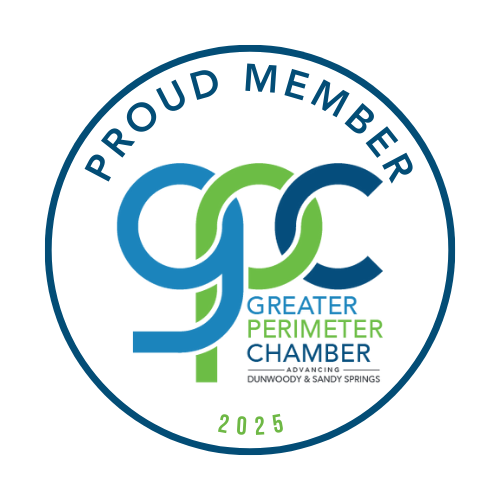Cravings pose challenges during the process of overcoming addiction. Whether triggered by surroundings or internal conflicts, they can quickly hinder progress and steer individuals back into unhealthy behaviors. Effectively managing cravings is essential for staying sober and achieving long-term recovery.
In this blog post, we explore the complexities of cravings concerning recovery, highlighting the importance of handling them. We also present six strategies aimed at providing individuals with the tools to navigate cravings successfully. Additionally, we share insights from Atlanta Recovery Place showcasing our approaches to addressing cravings and offering support to those on their journey to recovery.
Atlanta Recovery Place is a Georgia addiction recovery center offering a range of drug addiction treatment programs. Contact our team to learn how we can help you manage cravings while in recovery.
Understanding Cravings
In the journey of recovery, cravings refer to urges or longings to use substances. These desires are complex and influenced by both physical and emotional factors. Emotional triggers could stem from stress, past trauma, or environmental cues. In contrast, physical triggers involve changes in brain function and neurotransmitter levels.
Dealing with cravings is a challenge during recovery, requiring an understanding of the craving’s nature and origins. Developing strategies to cope with and conquer these cravings is crucial for achieving lasting sobriety and overall well-being.
6 Tips for Managing Cravings
Practice Mindfulness and Stay Aware
In the fight against cravings, being mindful can be a tool. It allows individuals to observe their cravings without giving in to them. Techniques like breathing and meditation help individuals stay present and resist the urge of cravings. By being more aware of their body sensations, thoughts, and emotions, individuals can learn to not react to cravings, letting them pass without acting on them. Through mindfulness practice, people can build resilience and enhance their ability to resist the temptation of addictive substances.
Adopt Healthy Lifestyle Habits
The impact of lifestyle choices on managing cravings is significant. Regular exercise is a player in combating cravings, as it not only improves mood and overall well-being but reduces craving intensity by releasing endorphins and other feel-good chemicals in the brain. Additionally, maintaining a healthy diet helps stabilize blood sugar levels, lowering the chances of experiencing cravings caused by glucose fluctuations. Prioritizing healthy lifestyle habits sets a groundwork for lasting recovery while providing defense against intense urges.
Establish a Support Network
Navigating the journey of recovery requires building support systems. A support network is crucial, as it provides a safety net when feeling vulnerable. Turning to friends, family, and support groups creates a sense of belonging and community, giving needed comfort and motivation during difficult times. By sharing experiences and understanding each other, individuals can find strength and resilience, knowing they are not alone in their battle against cravings.
Engage in Hobbies
Distracting oneself combats cravings by shifting focus from the temptation of substances. Engaging in hobbies and interests releases built-up energy and emotions, directing attention toward activities that bring happiness and satisfaction. Whether reading a captivating book, expressing creativity through art, or enjoying the pleasures of cooking, distraction techniques relieve cravings, enabling individuals to take control of their lives.
Use Behavioral Modification Strategies
Using behavioral modification strategies empowers individuals with the tools to challenge and change their response to cravings. By recognizing and challenging certain thinking patterns, people can break down the thoughts that drive cravings, replacing them with positive beliefs and attitudes. Additionally, learning ways to cope with cravings empowers individuals to handle triggers in a healthier manner instead of giving in to impulsive desires.
Use Healthy Coping Strategies
In the effort to overcome cravings, adopting healthy coping methods plays a role in the journey toward sustained recovery. Using relaxation techniques like breathing or progressive muscle relaxation allows individuals to calm their nerves and ease the symptoms of cravings. Similarly, exploring coping strategies such as writing or engaging in activities offers a productive way to process emotions and focus energy on positive pursuits. By nurturing self-awareness and self-care practices, healthy coping mechanisms enable individuals to navigate the challenges of recovery resiliently.
Atlanta Recovery Place Can Help
Atlanta Recovery Place works with its clients to develop real-life strategies for addressing cravings. We combine proven therapies with holistic alternative approaches to provide individuals with a set of tools to address cravings in recovery. Our method for addressing cravings is customized to suit each person’s needs, targeting the root causes of cravings and providing clients with practical strategies to manage them successfully. By merging evidence-based therapies like cognitive behavioral therapy (CBT) and dialectical behavior therapy (DBT) with practices such as mindfulness and yoga, Atlanta Recovery Place promotes well-being and personal development.
In summary, it is crucial to address cravings during the recovery process to maintain long-term sobriety and overall well-being. By recognizing triggers and utilizing coping strategies, individuals can successfully manage cravings and progress toward recovery. Together with Atlanta Recovery Place, you can conquer cravings. Set off on a journey towards a more fulfilling life today with Atlanta Recovery Place. Contact our Georgia drug and alcohol rehab to get started.









